Facilitated Diffusion Drawing
Facilitated Diffusion Drawing - Web facilitated diffusion involves the use of a protein to facilitate the movement of molecules across the membrane. Think of a pipe connecting a full tank of water to an empty one. Carrier proteins can move molecules across the membrane. Web facilitated diffusion is a type of passive transport that uses specialized proteins, such as channel proteins and carrier proteins, to help molecules move across a cell membrane. Web facilitated diffusion is a type of dimensionality reduction that has been used to describe the motion of transcription factors and regulatory proteins looking for their binding target on dna. What sort of molecules are transported? Web describe the different types of diffusion and how they operate across a membrane. Web in facilitated transport, also called facilitated diffusion, material moves across the plasma membrane with the assistance of transmembrane proteins down a concentration gradient (from high to low concentration) without the expenditure of cellular energy. 31k views 2 years ago cell membrane transport (short and sweet versions) this short animation briefly explains facilitated diffusion across a membrane. Active transport is against the gradient. In other cases, the protein changes shape, allowing molecules to pass through. During facilitated diffusion, the rate at which the solute permeates the membrane increases with increasing solute concentration up to a limit. Web facilitated diffusion is the process of spontaneous passive transport (as opposed to active transport) of molecules or ions across a biological membrane via specific transmembrane integral. These channels are glycoproteins (proteins with carbohydrates attached) that allow molecules to pass through the membrane. In other cases, the protein changes shape, allowing molecules to pass through. 31k views 2 years ago cell membrane transport (short and sweet versions) this short animation briefly explains facilitated diffusion across a membrane. Describe the mechanisms of passive and facilitated diffusion, including their. In this process, molecules can move down their concentration gradient without requiring any energy input from the cell. Hydrophilic molecules, charged ions, and relatively large molecules such as glucose all need help with diffusion. This interaction significantly accelerates the rate at which these solutes traverse the membrane. Web facilitated diffusion is the process of spontaneous passive transport (as opposed to. Web the increased rate of transport through the membrane is believed to be facilitated by specific membrane carrier substances and is called facilitated (or mediated) diffusion. Carrier proteins can move molecules across the membrane. Facilitated diffusion is a type of passive transport. In facilitated diffusion, the solute moves down the concentration gradient, from regions of higher to lower concentration, relying. Describe the mechanisms of passive and facilitated diffusion, including their differences and similarities. Even though facilitated diffusion involves transport proteins, it is still passive transport because the solute is moving down the concentration gradient. These channels are glycoproteins (proteins with carbohydrates attached) that allow molecules to pass through the membrane. Web describe the different types of diffusion and how they. Explain the concept of concentration gradient and how it drives diffusion. A concentration gradient exists for these molecules, so they have the potential to diffuse. Active transport is against the gradient. Web facilitated diffusion, a fundamental biological transport mechanism, involves the selective interaction of specific membrane structures with certain solutes or solute classes. Web facilitated diffusion is the diffusion of. Web in this video, we explore: What sort of molecules are transported? Water and many other substances cannot simply diffuse across a membrane. Carrier proteins can move molecules across the membrane. The help comes from special proteins in the membrane known as transport proteins. Web facilitated diffusion is a type of passive transport and along the gradient. Facilitated diffusion is a type of passive transport. Web the increased rate of transport through the membrane is believed to be facilitated by specific membrane carrier substances and is called facilitated (or mediated) diffusion. These channels are glycoproteins (proteins with carbohydrates attached) that allow molecules to pass. Web in facilitated diffusion, molecules diffuse across the plasma membrane with assistance from membrane proteins, such as channels and carriers. Web facilitated diffusion is a type of passive transport that uses specialized proteins, such as channel proteins and carrier proteins, to help molecules move across a cell membrane. Web facilitated diffusion is a type of passive transport and along the. Active transport is against the gradient. Think of a pump moving water from a nearly empty tank to an almost full one. Some molecules can pass freely through a cellular membrane. These channels are glycoproteins (proteins with carbohydrates attached) that allow molecules to pass through the membrane. Hydrophilic molecules, charged ions, and relatively large molecules such as glucose all need. Even though facilitated diffusion involves transport proteins, it is still passive transport because the solute is moving down the concentration gradient. Water and many other substances cannot simply diffuse across a membrane. Web in facilitated transport, also called facilitated diffusion, material moves across the plasma membrane with the assistance of transmembrane proteins down a concentration gradient (from high to low concentration) without the expenditure of cellular energy. Web facilitated diffusion involves the use of a protein to facilitate the movement of molecules across the membrane. Web facilitated diffusion is a type of passive transport and along the gradient. This interaction significantly accelerates the rate at which these solutes traverse the membrane. Web facilitated diffusion definition. Diffusion is a type of transportation that occurs across the cell membrane. Web describe the different types of diffusion and how they operate across a membrane. This process does not require energy. Web one way in which cells can control diffusion is through the control of movement of particular types of molecules. During facilitated diffusion, the rate at which the solute permeates the membrane increases with increasing solute concentration up to a limit. These channels are glycoproteins (proteins with carbohydrates attached) that allow molecules to pass through the membrane. Web facilitated diffusion is the process of spontaneous passive transport (as opposed to active transport) of molecules or ions across a biological membrane via specific transmembrane integral proteins. Web facilitated diffusion is the diffusion of solutes through transport proteins in the plasma membrane. Large polar molecules and ions cannot diffuse through the lipid bilayer.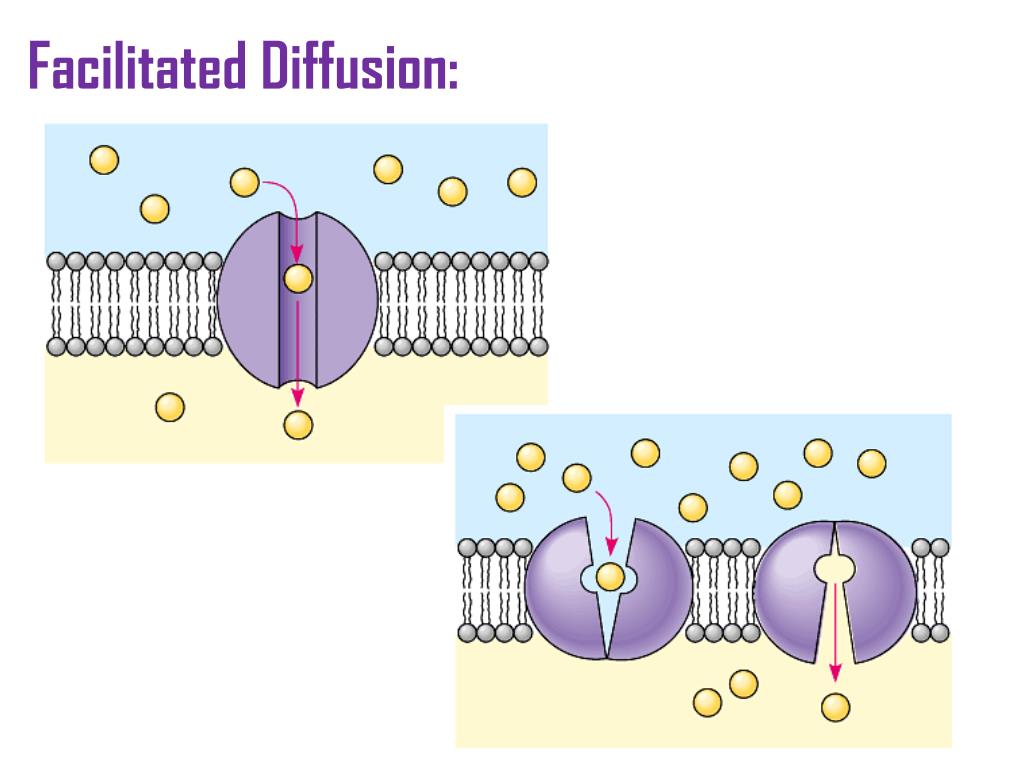
PPT Unit Five Cell Transport PowerPoint Presentation, free download
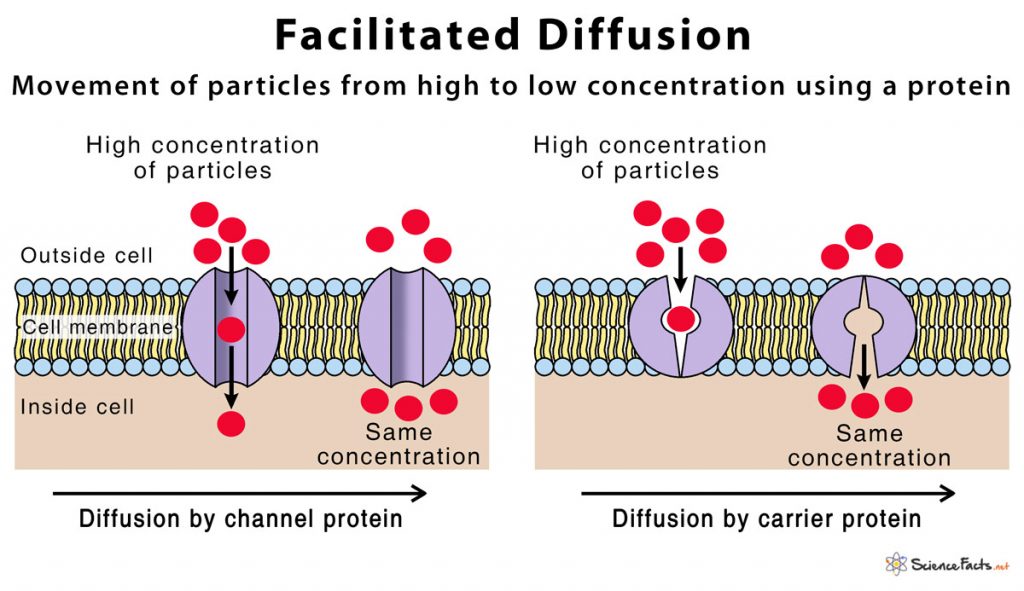
Facilitated Diffusion Science Facts

Carrier Protein in Facilitated Diffusion Complete Guide Lambda Geeks
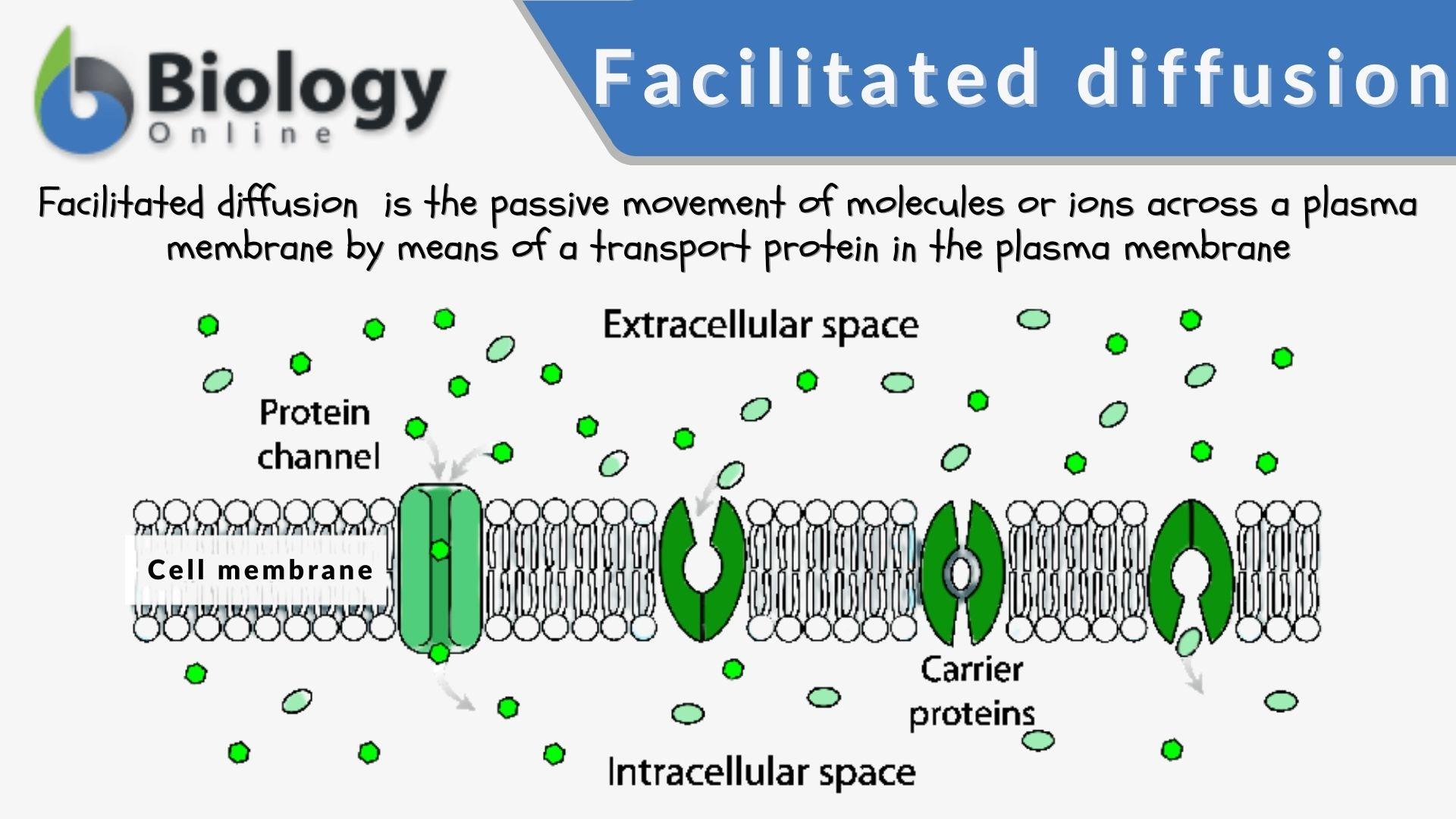
Facilitated diffusion Definition and Examples Biology Online Dictionary
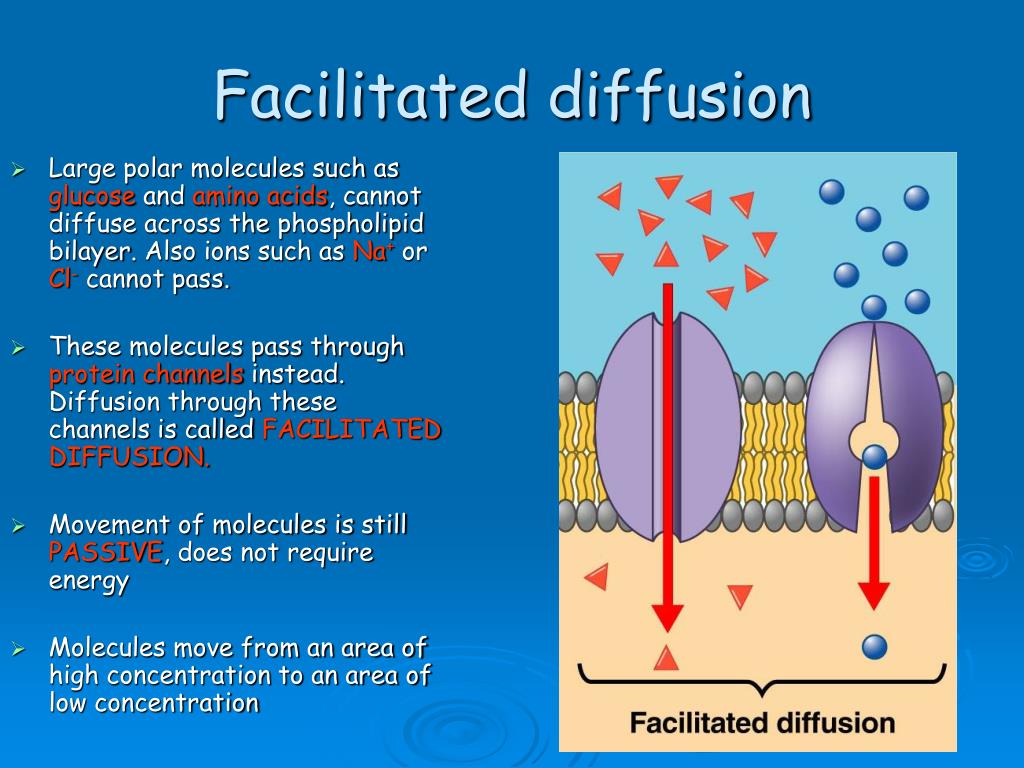
PPT The cell membrane PowerPoint Presentation, free download ID2522482
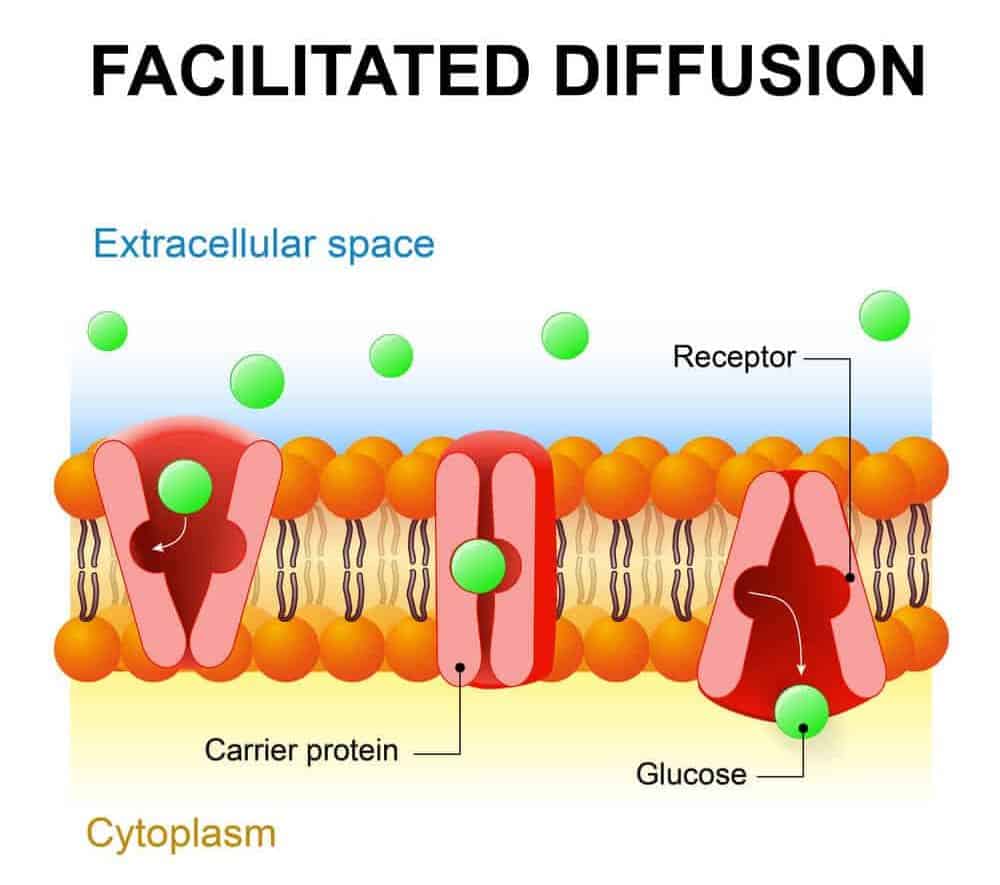
3 Types of Diffusion (Plus Examples for Each) Nayturr

PPT Membrane Structure and Function PowerPoint Presentation, free
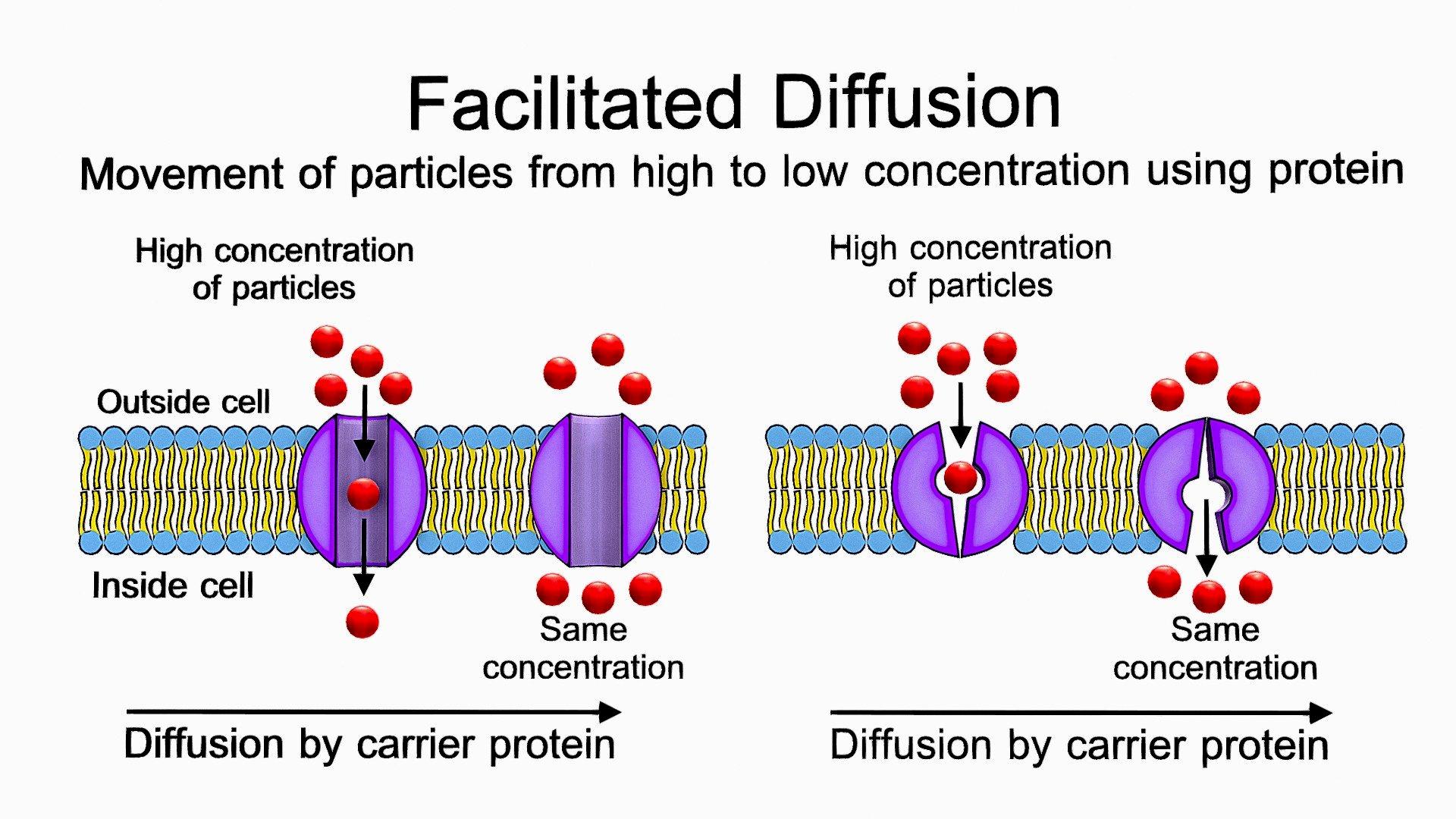
The Role of Carrier Proteins in Facilitated Diffusion

Facilitated diffusion Wikipedia

What Is Facilitated Diffusion
The Help Comes From Special Proteins In The Membrane Known As Transport Proteins.
Describe The Mechanisms Of Passive And Facilitated Diffusion, Including Their Differences And Similarities.
Cells Will Have Carrier Proteins For.
Web Facilitated Diffusion Is A Type Of Passive Transport That Uses Specialized Proteins, Such As Channel Proteins And Carrier Proteins, To Help Molecules Move Across A Cell Membrane.
Related Post: